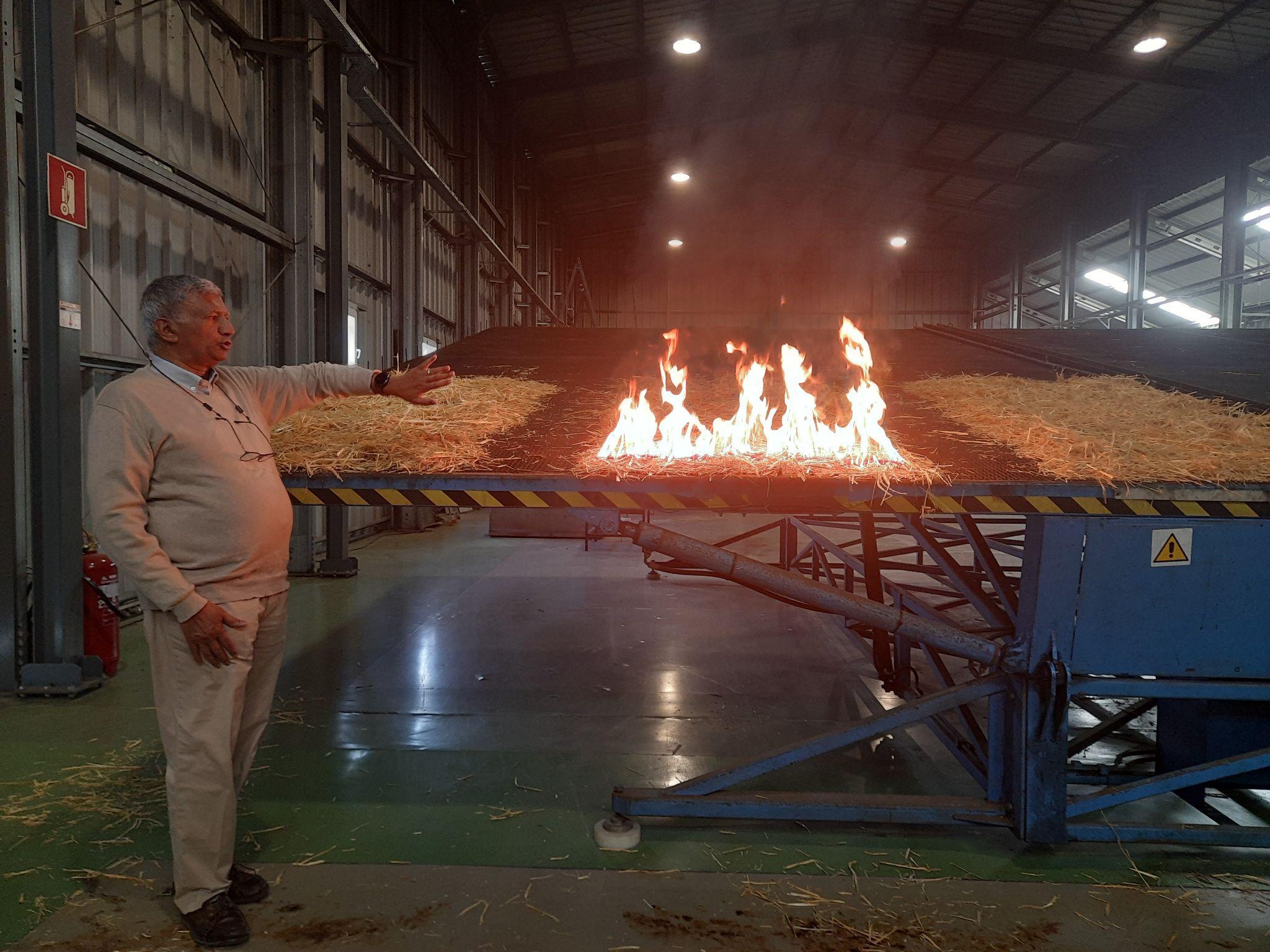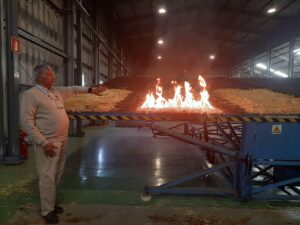Operating for over 30 years under the guidance of Instituto da Conservação da Natureza e das Florestas, the Florestal Operation Center plays a key role in the training and valorization of professional forest firefighters and its coordinator, João Fernandes is a diverging voice in the wildfire debate.
Dismissing climate change as a wildfire cause, Fernandes emphasizes the role of humankind, estimating that “over 90% (of wildfires) are a result of human action”. Moreover, he states that “the forest is never to blame”, giving his contribution to the ever present and often controversial eucalyptus debate, stating that “I wish we had more eucalyptus and less bare land”.
Instead, he places the tonic on the desertification of rural areas, less capable of properly defending themselves against the fire threat due to their aged population and on the scarcity of qualified personnel, namely professional firefighters. The coordinator justifies the latter based on a bifurcated answer, blaming underpayment and the lack of status and recognition of the profession for the phenomenon. Similarly, Fernandes blames the poor forest management, defending that “there is a problem”.
In turn, forest engineer and firefighter Verónica Catarino, one of the few women in this male dominated area, is one of the professors in the Portuguese Firefighters School center in Lousã. Specialized in the mitigation of rural fires, the school forms a wide variety of professionals ranging from firefighters to commanders. In a contrasting manner, and while recognizing the controversial nature and the lack of academic consensus concerning eucalyptus proliferation, often cited as one of the main causes of wildfires in the country, admitted those are easier to mitigate on native species.
Catarino justifies her answer based on several factors such as the rapid burning rhythm verified on non-native species contributing to accelerated proliferation of the fire, its higher demands of water compared to autochthonous species and lastly, quick seed dispersion.
Coimbra’s University Professor Dr. Domingos Xavier Viegas, researcher in the Forest Fires Study Lab, responsible for the study of fire behaviour, shares the engineer’s concern regarding the australian native tree, partly blaming private initiative for its proliferation, defending a conciliatory solution: a more proportional distribution of native and exotic species. Furthermore, Viegas harshly criticized the government arguing the forest has been neglected by the successive cabinets alleging poor management, lack of investment and scarce success in raising awareness regarding the threat and the proper measures of mitigation and security that should be activated in such a case.
The professor takes a step further defending systemic change stating “we can’t do business as we did, we can’t continue to use the same species and the same type of management”, calling for a moderate version of the current economic model adding we should not be “too extreme”.
Despite different backgrounds and diverging opinions on the debate, all specialists are united by their devotion to an eco-friendly paradigm shift and by the idea that the best way to tackle the issue is through education making it their biggest mission, drawing particular attention to the younger generations and to integrated and sustained initiatives.





You must be logged in to post a comment.